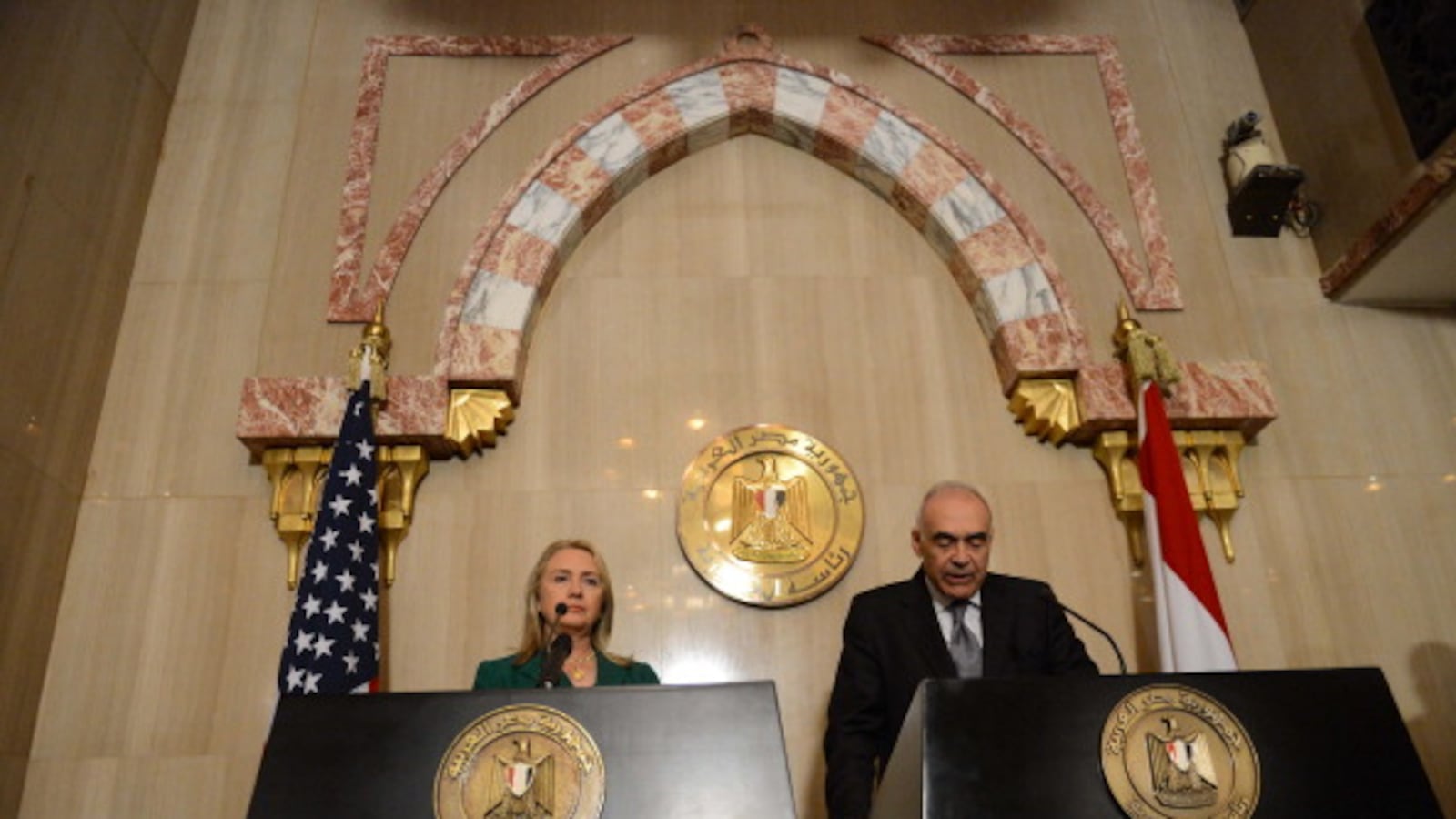The American hesitancy to even call for a ceasefire at the outset of this violent flare-up of the Hamas-Israel conflict eventually gave way over the weekend to a concerted push for one, replete with the top American diplomat jetting around the region in hopes of establishing even a tenuous calm. None was immediately forthcoming, but a short while ago reports, followed by official announcements, poured out confirming a ceasefire of sorts: both Hamas and Israel agreed, through Egyptian mediation, to halt their fire unilaterally together. The announcement came from Egypt's foreign minister, with Secretary of State Hillary Clinton by his side.

The deal will, according to leaks to media, entail a 24-hour period of quiet from both sides, after which restrictions on moving goods in and out of the closed crossings into the Strip will be loosed. Israel's chief concern is weapons smuggling into Gaza. The ongoing talks, after the initial calm, will reportedly be aimed at addressing these issues. It's not clear the deal will hold; too many questions remain. The spoilers—especially on the Palestinian side of the de facto border with Gaza, will no doubt do their best to spike the deal. A stray rocket, or another bomb like the horrific attempt to murder dozens on a Tel Aviv bus this morning (which resulted in the relieving but still harrowing toll of about two dozen injuries), could derail this thing. Israel, as of an hour before the truce was to take effect, was still pummeling the Gaza Strip with bombs and, it should be noted, has broken ceasefires itself.
Initially, the de facto Hamas statelet in Gaza reportedly refused to sign a ceasefire without guarantees for the blockade against its territory to be lifted; the Israelis, amid a heightened campaign of aerial bombardment last night, wouldn't sign a short-term deal for tentative relief, opting instead to try to secure an agreement that might secure its citizens for a prolonged period. This intransigence on both sides made sense: each wants to declare victory and show tangible long-term gains. The death and destruction, however, continued apace. The cliché that the status quo is untenable took on ever more gravitas. Enter the Americans.
The U.S. involvement was not supposed to be an instant game-changer; our diplomatic processes grind slowly and, while pressure can be applied, remain beholden to the principals. But the chief mediator—Egypt's Muslim Brother president Mohammed Morsi—and the Israeli government both value their ties to the U.S., and both acted like it in the face of apparent American requests. In his announcement on Twitter, Benjamin Netanyahu was explicit that he "accepted [Obama's] recommendation to give [the] Egyptian proposal for a ceasefire a chance." Those of us who called for public pressure should take heed: JTA's Ron Kampeas noted on Twitter that Obama apparently "extracted Israeli concessions [without] an ounce of public pressure." Nonetheless, there was pressure and, for the moment, it seems to have accomplished something. Like everyone else, we'll wait to see if that accomplishment will bear tangible fruits—starting in 15 minutes when the agreement will go into effect. Will the unyielding explosions on both sides of the de facto border over the past week go silent?





